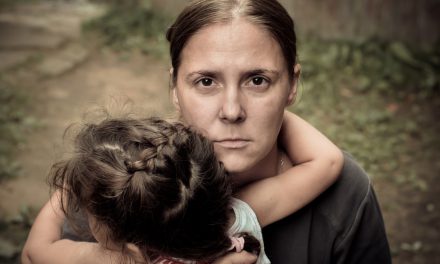The 2021 Get Link’d Missouri Rural Health Conference is a crash-course in innovations improving access barriers to quality health care in rural communities. The conference will be held in person August 17-19, 2021, at the Old Kinderhook Lodge in Camdenton, Mo. Attendees can expect keynote speakers from national health associations, interactive breakout sessions, networking opportunities, a vendor product exhibit, among other exciting events.
Get Link’d was developed four years ago through a collaborative partnership between the Missouri Department of Health and Senior Services, Missouri Primary Care Association (MPCA), Missouri Health Association (MHA), and Missouri Rural Health Association (MRHA). According to MRHA Director Melissa Van Dyne, the partners decided to combine their respective individual rural health conferences. “Even though we might address health issues differently, there is still an overarching bigger picture and safety net for our rural health providers,” Van Dyne said. “We wanted to make sure we address all the different angles.”
Who will be there?
According to Van Dyne, the intended attendees for this conference are anyone and everyone with a stake in rural health and the social determinants of health. Expected audiences consist of hospitals, clinicians, physicians, federally qualified health centers, health departments, in-home and community frontline workers, community and social agencies, policymakers, CEOs, CFOs, transportation and ambulance professionals, insurance and investment brokers, health law attorneys, among other professionals. “Everyone is trying to collaborate and focus on what we can do to increase access to quality care in rural areas,” said Van Dyne.
While the conference is rural-focused, the information available can benefit everybody. Rural areas face unique barriers to healthcare access including geographic and transportation barriers, health insurance coverage, social stigmas, and workforce shortages, among others. Lack of reliable transportation is a barrier to care and can be a burden to secure in terms of time and cost. For elderly patients or those with chronic conditions, relying on others for transportation is not only difficult but can diminish feelings of independence.
Stigmas surrounding health, such as being seen as weak for seeking help or support, also prevent access to care for many in rural areas. Mental health is an especially taboo topic that prevents many residents from speaking up about needing support navigating substance use, sexual health, pregnancy, and more. Patients in highly stigmatized areas may struggle to trust health care providers or facilities.
The challenges in rural areas contribute to a consistent turnover of hospital and clinic staff, or a lack of students seeking out rural health professions in general. As of March 31, 2021, 61.47% of Primary Medical Health Professional Shortages were in rural areas compared to non-rural (31.92%), partially rural (6.6%), and unknown (0.01%). Rural areas also ranked highest for shortages in dental professionals (63.05%) and mental health professionals (58.44%). Primary Care HPSAs are scored 0-25, with higher scores indicating a greater need for primary care providers. This April 2021 map highlights nonmetropolitan areas with primary care workforce shortages, with areas in darker green indicating higher scores:
Primary care access, including sufficient facilities, resources, and staffing, is critical to improving individual and community health. According to Contribution of Primary Care to Health Systems and Health, for groups facing barriers to care such as rural residents the benefits of improving primary care access include early disease detection and improved health behaviors. Coordinating care programs across the community creates a sustainable partnership able to be maintained and expanded. It also allows those closest to problems to be directly involved in facilitating solutions.
Van Dyne says rural health leaders often have to think outside the box to overcome the challenges they face. For instance, MRHA has taken a step towards solving the transportation gap by implementing HealthTran. HealthTran offers patients in the community volunteer-driven rides to and from health and wellness appointments. Over time, riders and volunteer drivers build rapport and establish family-like friendships. Providing patients affordable ride options with a cheerful face reduces missed appointments, increases independence, and creates sustainable community connections. MRHA’s James A. McGee, RN, Sandra Morris, and Regan Alewine will all present on HealthTran during breakout sessions during the conference.
Other presentation topics include mental health and stigmas, gun violence, care coordination, telehealth, teledentistry, among others. Van Dyne recommends going to breakout sessions outside of your area of expertise. Those unfamiliar to rural areas, such as providers in more urban areas or those new to the health care field, are encouraged to participate. Even if solutions for rural areas don’t translate to urban spaces seamlessly, the different experiences shared at the conference can offer new perspectives to universal barriers. “If you’ve ever had questions about rural health or the innovative things going on in our area pertaining to health care, this is a fantastic time to come and learn,” said Van Dyne.
Van Dyne, along with MRHA Board President Patty Miller, will kick off the conference Wednesday morning with a Welcome keynote address. Following their welcome will be Brock Slabach, MPH, FACHE, Sr. Vice President for Member Services of the National Rural Health Association. Slabach will give a keynote titled The Landscape of Rural Health, offering an overview of what the last few years have meant to rural health, especially during the COVID-19 pandemic.
At this time, Van Dyne said they are adhering to all CDC guidelines and local county health guidelines as they change for the duration of the conference. “We always, always encourage people to wear masks, especially if you haven’t been vaccinated, and we encourage you to get vaccinated if you haven’t been.”
The conference offers a wide range of investment and sponsorship opportunities to showcase an organization, business, or product. Breakout session moderators are given a two-minute time slot to introduce the session as well as highlight their organization’s name and product or service. An exhibit exposition will be available most of the conference including during refreshment breaks. Vendors with innovative products and technology transforming rural health are encouraged to sign up for a booth within the exposition. Organizations can sponsor the conference and receive a vendor booth, recognition on the MRHA website, and other perks.
Though vendor booths are filling up quickly, spots are still available. Click here to learn more about exhibitor registration.
What can attendees expect?
Despite a three-day timeline, the heart of the conference is within the interactive breakout sessions packed between Wednesday afternoon and Thursday morning. “There’s a lot going on in just that 24 hours,” said Van Dyne, a Get Link’d veteran. Attendees will choose between four different breakout sessions happening at a time, all pertaining to different areas of rural health. Breakout sessions are more interactive than keynote presentations and will include time at the end for a Q&A session and networking.
The breakout sessions are specifically intended to encourage community leaders to make a stronger impact with the knowledge, insight, and connections they’ve gained. “Hopefully they are taking away something they can bring back to their hospital, clinic, or community in general,” Van Dyne said. “Maybe that practice doesn’t fit it to a T, but there’s a way they can implement it in their own community to improve access to health care or at least start breaking down some of the barriers they’re finding.”
Personally, Van Dyne is most excited for the closing general session titled Where It Hurts. The session will feature Sara Jane Tribble from the Kaiser Health Network discussing a popular podcast of the same name. According to Van Dyne, the podcast explores rural hospital closures and regularly features various community perspectives including those of hospital workers, doctors, patients, and more. “I am really, really looking forward to hearing what she has to say and her experiences on how that all played out at the community level.”
Throughout the conference, there will also be time in the evenings to kick back, relax, and network via a game of sand volleyball or a round of golf. “If you’re a golfer and you’ve never played at Old Kinderhook, you’re missing out!” said Van Dyne. Conference details, including hotel booking information and a group discount code, are available here.
Register, today!
For those attending the conference for the first time, Van Dyne’s greatest piece of advice is to sit next to someone you don’t know. “That way you can start a relationship and start engaging with someone you haven’t before – that’s how you learn something new. That’s how relationships and networks are built.”
The conference, while educational, prioritizes connection and collaboration. The focus on engaging with others, especially with presenters during their breakout sessions, is intended to build relationships that last beyond the conference. Attendees can not only expand their networks and resources but also find potential areas to collaborate on barriers that affect multiple communities.
Van Dyne encourages anyone with questions about the conference, exhibitor opportunities, membership perks, and more to reach out directly. “I would be more than happy to walk you through and point out anything that you might want to participate in or definitely won’t want to miss.” MRHA staff will also be available at the registration table during the conference.
MRHA members receive discounted rates for the annual Get Link’d Missouri Rural Health Conference among other perks. This year will be the first time the conference will include the MRHA annual membership meeting where attendees will vote on board members. “It’ll definitely be worth your time and effort to be a member and be able to provide input into the association as well,” said Van Dyne. Click here to learn more about MRHA membership.
MRHA will also be revealing a secret in the works Van Dyne hopes will prove to be a worthwhile and game-changing investment. “I’m hoping we’ll be able to connect with one another a little more even after conference whenever we kick off something special that I’ve got up my sleeve.”
To view all conference information, a detailed itinerary, registration forms, ticket prices, and more, visit https://mrhassociation.org/conference-2021/. Reserve your spot today and purchase attendee tickets here. Listen to Van Dyne discuss the conference in on the accessHealth News podcast.








